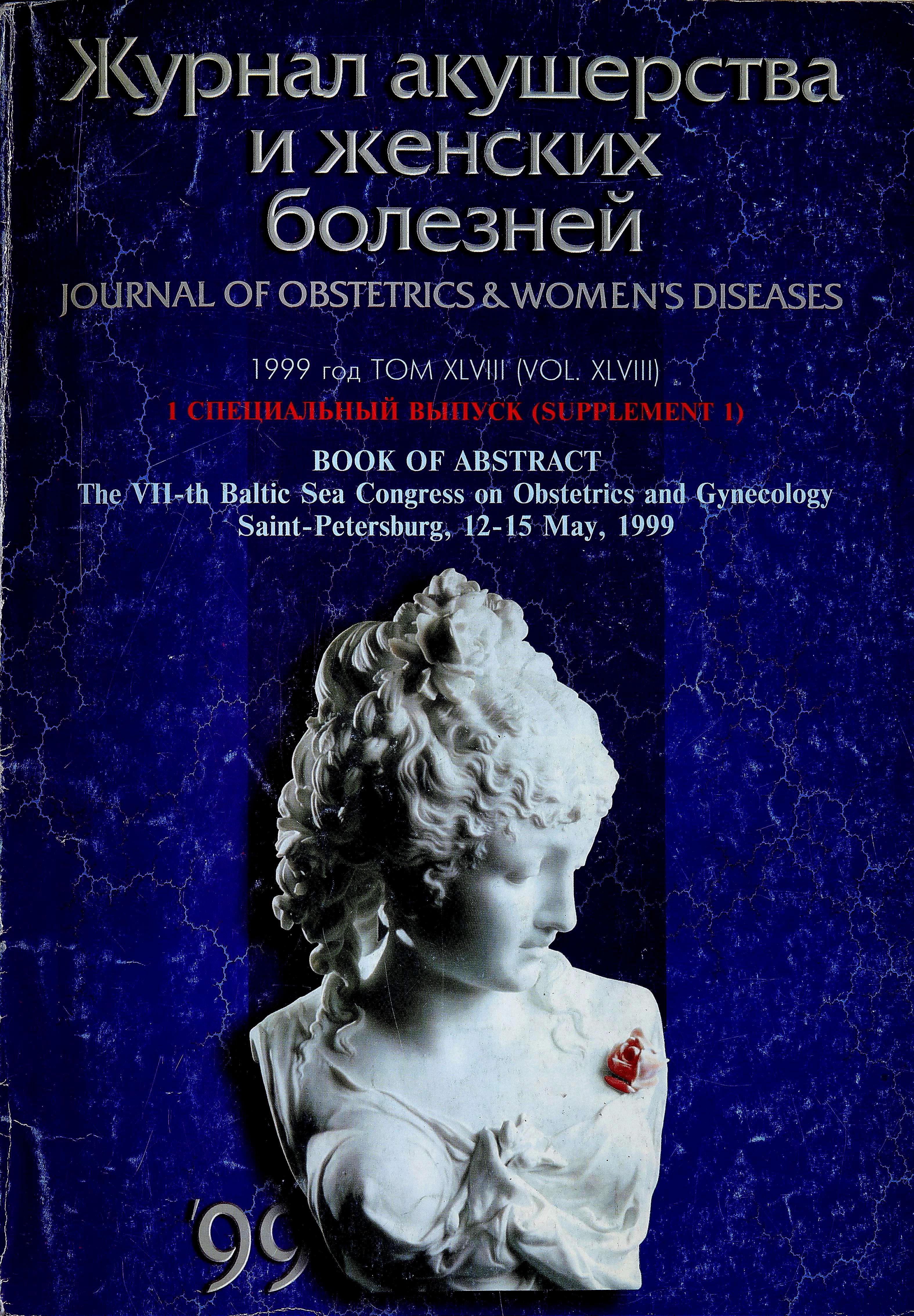Metabolic effects of oral contraceptives in women with insulin dependent diabetes mellitus
- Authors: Nikitin S.V.1
-
Affiliations:
- D.O. Ott Institute of Obstetrics and Gynecology, Russian Academy of Medical Sciences
- Issue: Vol 48, No 5S (1999)
- Pages: 117-117
- Section: Articles
- Submitted: 20.02.2022
- Accepted: 20.02.2022
- Published: 15.12.1999
- URL: https://journals.eco-vector.com/jowd/article/view/101251
- DOI: https://doi.org/10.17816/JOWD101251
- ID: 101251
Cite item
Full Text
Abstract
Objective: To evaluate the effects of oral contraceptives on carbohydrate and lipid metabolism and hemostasis in women with insulin dependent diabetes mellitus (IDDM).
Full Text
Objective: To evaluate the effects of oral contraceptives on carbohydrate and lipid metabolism and hemostasis in women with insulin dependent diabetes mellitus (IDDM).
Methods: 18 women with were accepted to the study. The mean age of subjects was 29,5±1,8 years. The mean duration of diabetes was 12,5±1,6 years. Only non-smoking women were admitted to the study. The first group (8 women) received a combination of 0,02 mg ethinylestradiol (EE) and 0,15 mg desogestrel (DSG). The second group (10 women) received a combination of 0,03 mg EE and 0,15 mg DSG. The main study procedures including measurement of glycosylated hemoglobin (HbAlc), fasting total cholesterol, triglyceride, high-density lipoprotein cholesterol, prothrombin time, activated partial thromboplastin time, fibrinogen, activity of factors VII and VIII, antithrombin III activity rates were performed before, after 3 and 6 months of hormonal intake. Low-density lipoprotein cholesterol (LDL-C) and very-low-density lipoprotein cholesterol concentrations were calculated with the Friedewald equation.
Results: There was no significant change in mean HbAlc values at the beginning and at the end of the study in both groups. At the beginning of the study women with IDDM had the increased levels of total cholesterol, LDL-C and triglyceride. The intake of the combination of EE with DSG increased levels of total cholesterol and LDL-C after 3 months in the both groups. Parameters of lipid metabolism were not statistically different at the beginning of the study and after 6 months of the hormonal intake. The intake of two low-dose EE and DSG regimens was associated with the increase of activity of factors VII, VIII and antithrombin III.
Conclusions: The present study demonstrated that use of low-dose contraceptives does not affect lipoprotein metabolism. The use of low-dose EE and DSG is associated with the increased coagulation activity, which seems to be balanced by the increased anticoagulation activity.
About the authors
S. V. Nikitin
D.O. Ott Institute of Obstetrics and Gynecology, Russian Academy of Medical Sciences
Author for correspondence.
Email: info@eco-vector.com
Russian Federation, St. Petersburg
References
Supplementary files







